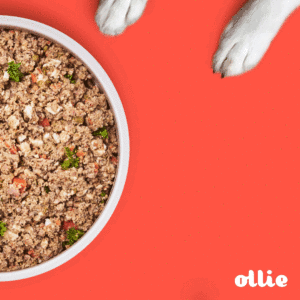Can Dogs Eat Watermelon?
Can Dogs Eat Watermelon? The Answer Is Yes!
You’ve heard the phrase, “Treat yourself!” But how do you treat yourself to something
that’s arguably one of the most delicious fruits in the world? Watermelon, of course! And
while it’s true that watermelon does taste delicious, it can be a bit scary for those who are
new to the fruit. Not only is it sweet and refreshing, it’s also very high in water. Watermelon
is a great fruit for hydration! So what’s the deal with watermelon and dogs? Do dogs eat
watermelon? The answer is yes, but with a few caveats.
Watermelon is a fruit and part of the melon family
Watermelon is a sweet fruit that can be consumed by dogs in moderation, but don’t feed it
as a primary source of nutrition. Watermelon is a low-calorie fruit and shouldn’t make up
the majority of your dog’s daily food intake. One 12-ounce watermelon provides about 50
calories, which is actually below the caloric equivalent of an apple. Watermelons are also
naturally low in cholesterol and sodium, making it a healthy choice for a treat. Watermelons
are part of the melon family, which also includes cantaloupe, honeydew, and crenshaw.


Can dogs eat watermelon?
Yes, dogs can eat watermelon, but you should only give them one each day. Watermelons
are high in water and nutrients, but they’re also low in protein and calcium. These essential
minerals are required by dogs to maintain and repair their bodies, so they should be
included in your dog’s diet. As far as how often, you should only give your dog one
watermelon per day. By only supplying your dog with one per day, you can also give them a
small treat at the same time.
Watermelon is high in water!
Watermelons contain a lot of water, which is good for dogs, but it can be somewhat
dangerous for them to eat too much watermelon. Watermelons are very high in water, and
too much water in your dog’s diet can lead to a condition known as dilutional
hyponatremia. Watermelon is a fruit and part of the melon family, which contain water. So,
in simple terms, watermelon is very high in water.
When dogs consume too much water, their body fluids become diluted. This can be
dangerous for your dog because it causes his body to lose too much sodium and water. The
first signs of dehydration are fatigue and loss of appetite. These are signs that your dog is
not properly hydrated. Without proper hydration, your dog’s organs begin to shut down
and he can begin to experience seizures, coma, and death. It’s important to monitor your
dog’s water intake and make sure he’s drinking plenty of water each day. It’s also important
to make sure he’s getting enough other essential nutrients in his diet. Another option is to
use a bowl that has a hole in it to help prevent water from pooling in the bottom.
How often can dogs eat watermelon?
You should only give your dog one watermelon per day, so how often can a dog eat
watermelon? There is no hard and fast rule for how often a dog should eat watermelon; it
depends on a few different factors, such as your dog’s age, size, activity level, and health. If
you have a puppy who is growing rapidly, you may want to space out his watermelon intake
over the course of a week. On the other hand, if your dog is an old dog with a slow
metabolism, you may only need to feed him one watermelon per day. As far as how much,
the general rule of thumb is one to two cups of watermelon per dog per day.
Watermelon can be an all-in-one dog treat.
Watermelons can be a healthy treat for dogs, but they should be used in moderation. When
you give your dog a watermelon, it’s important to make sure he eats it slowly and in small
bites. Many dogs love the sweet, juicy taste of watermelon but can become overwhelmed if
they eat too much. All you have to do is cut a watermelon in half and serve it in pieces. Your
dog can help himself to as much as he wants, but he can also eat it slowly and enjoy every
bite. Watermelon is a great alternative to rawhide. Rawhide is a popular treat for dogs, but
it can be harmful. Dogs can eat too much of the stuff and develop digestive issues or
intestinal blockages. Watermelon is a better option for your dog because it’s an all-natural
treat that doesn’t pose any health risk. It’s also a great source of vitamins and minerals,
which makes it healthier than rawhide.
Watermelons make great treats for dogs who have food allergies.
If your dog has food allergies, watermelon may be the perfect treat for him. Watermelons
are hypoallergenic, meaning they don’t contain any ingredients that can cause an allergic
reaction. They’re also gluten-free and don’t contain any artificial flavors. Watermelon is a
great source of vitamins and minerals.
Can dogs eat watermelon rhinds?
Yes, dogs can eat watermelon rinds. The green part of the watermelon is safe for dogs to
eat.
Can dogs eat watermelon seeds?
Dogs can eat watermelon seeds, but there’s a limit to how much you can feed them.
Watermelons contain high levels of oxalate which are poisonous to most animals. You
should never feed your dog more than a few seeds per day.
In conclusion, can dogs eat watermelon?
If you want to give your dog a treat that’s healthy and full of flavor, you should definitely
consider giving him watermelon. There are, however, a few things you should know. First,
you should only give your dog one watermelon per day. Second, don’t serve your dog
watermelon straight out of the bag or bucket. Watermelons are high in water so they can
dilute your dog’s blood and lead to dehydration. Third, don’t forget to monitor your dog’s
water intake. If he is consuming too much water, you should remove some of it because it
could be dangerous for his health.
As always here at candogeat.org we believe in feeding your pup a home cooked healthy meal plan. This can greatly improve the health of your dog. We are not veterinarians though so if you have questions about your dogs health contact a veterinarian.




